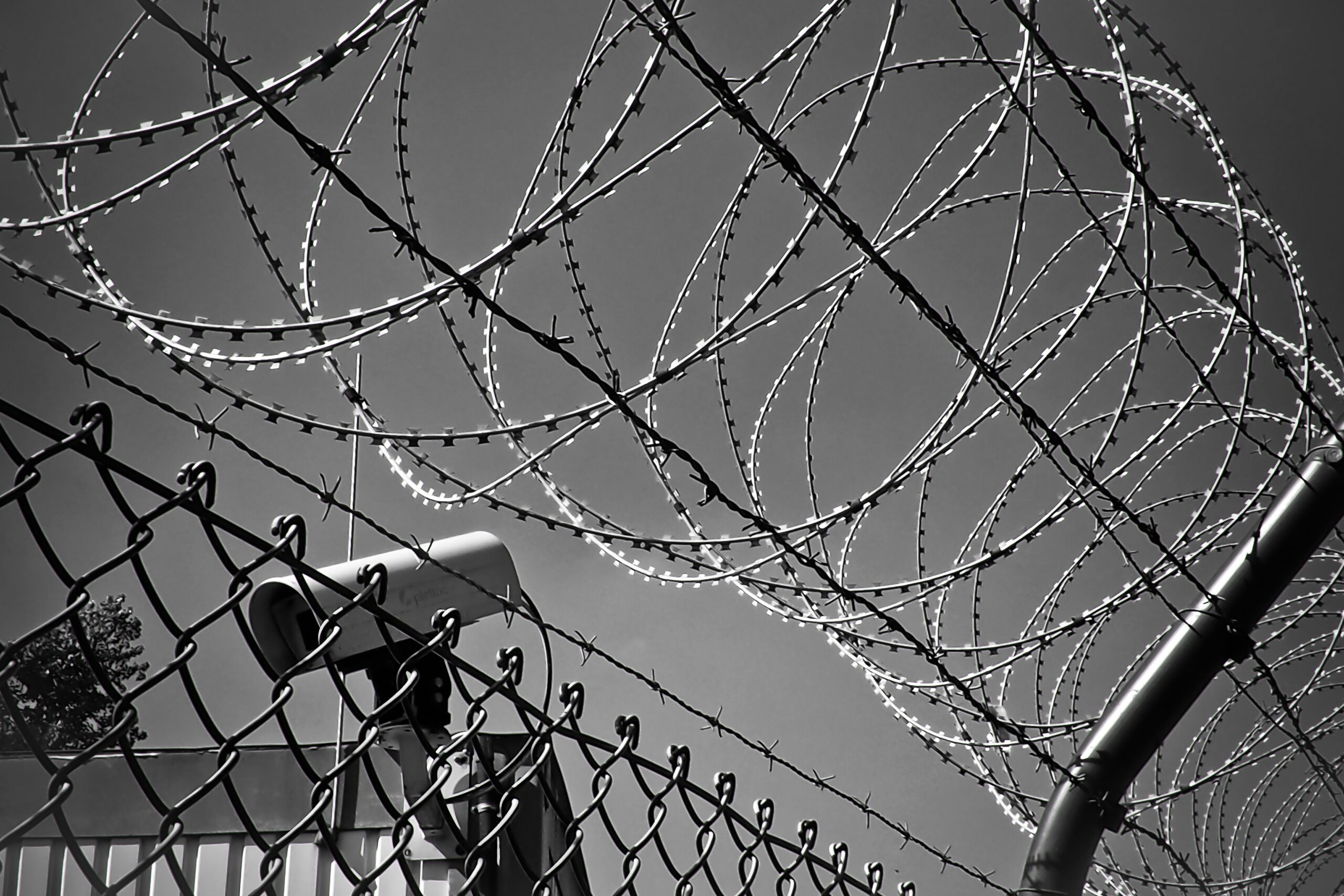
On Sunday, September 17, in Lampedusa, the nerve center of the migrant reception crisis, European Commission President Ursula Von der Leyen emphasized the need for firmness from Europe regarding illegal immigration. Since mid-September 2023, tens of thousands of people have arrived on the island, bringing back to the media spotlight a sensitive debate that often symbolizes the growing polarization of civil and political societies in Europe: immigration.
As the security situation in the Sahel worsens, the economic and political conditions in African countries are structurally deteriorating, and climate change exacerbates food insecurity for some populations, Europe decides to take a tougher stance against those seeking a more dignified and safer life on the Old Continent. In France, for example, the Minister of the Interior stated that " France will not welcome migrants coming from Lampedusa. ". He also called for a united front with Italy, whose reception and integration services are completely overwhelmed.
An emergency plan to assist Italy.
"This is the future that Europe wants to shape, as its future depends on its ability to confront major challenges. ," said Giorgia Meloni, the Italian Prime Minister, in Lampedusa. Beside Ursula von der Leyen, she subtly criticized her European partners for lacking solidarity towards her country. The Commissioner advocated for her, stating that " "irregular immigration is a European challenge that requires a European response." ," she urged member states to voluntarily accept migrants disembarked in Italy. The Commission President also proposed an emergency plan. to address a situation that has become unmanageable. This plan would be based on expanding border controls through increased resources for the Frontex agency, strengthening "legal pathways" available to migrants and refugees, and accelerating financial aid to Tunisia, a primary departure point for Europe.
The Tunisian challenge
a strategic partnership that aims to enhance Tunisia's border control mechanisms, combat human trafficking, and expedite the return of asylum seekers whose applications have been rejected. This agreement is controversial, as many NGOs condemn the violence against migrants in Tunisia, their arrests, and subsequent "deportations" to hostile desert areas along the borders with Libya and Algeria. However, according to Giorgia Meloni, the agreement embodies " a model for establishing new relations with North Africa. ", as well as marking " a new important step towards addressing the migration crisis in an integrated manner ".
Instead of 'welcoming all the world's misery,' should we regulate it?
During his visit to Marseille on September 22, Pope Francis denounced " the fanaticism of indifference. ", referring to the thousands of people who die each year in the Mediterranean waters, whose tragic fate is relegated to mere news items. It is now up to Emmanuel Macron to acknowledge that the Pope " is right ", while replying that France " does its part " and cannot " welcome all the misery of the world. ". Italy shares a similar but more radical view. Indeed, Giorgia Meloni has warned that those who attempt to reach Europe by relying on " human traffickers " for " violate Italian law " will be " arrested " then " returned ".
Germany, for its part, advocates for monitored and regulated immigration, but remains open. The goal here is to curb illegal immigration, which is becoming increasingly unmanageable. In Germany, there is also a push for an equitable distribution of refugees within the European Union.
In 1999, the European Union attempted to build an asylum policy that quickly revealed its limitations, as states were reluctant to share the burden of immigration at that time. Currently, the only prevailing mechanism is one of voluntary solidarity, and its weaknesses are evident: while Germany presents a relatively open stance, it has announced that it will no longer accept any migrants arriving from Italy.
In 2023, the proposed reform of the Common European Asylum System (CEAS) includes a mechanism for distributing migrants that could potentially resolve this stumbling block. Nevertheless, some Eastern member states (Hungary, Poland), openly anti-immigration, oppose what they describe as " a diktat from Brussels. The future of a peaceful management of migratory flows in Europe thus remains uncertain. Despite Germany's conditional openness, the EU is closing in on itself, and this tendency is facing harsh criticism.
Blame it on the hotspot effect
Indeed, many researchers highlight the lack of pragmatism among European political authorities: accordingto Marie Bassi and Camille Schmoll, their reaction is out of touch with the reality of the situation: " we are seeing roughly the same number of arrivals as in 2015 and 2016, and even then, we said that it was nothing compared to the 850,000 people who arrived in Greece in 2015." ". Notably, in three months, Italy welcomed over 120,000 Ukrainian refugees, and their reception went smoothly. In contrast, the arrival of 8,500 migrants on the island of Lampedusa has led to the resurgence of a very sensitive debate across Europe, exacerbated and polarized by its instrumentalization, particularly by the far right. This is due to the hotspot effect, described by the researchers as the confinement of asylum seekers in a restricted space, which " reinforces the visibility of the phenomenon. ". They add that " These border islands concentrate, due to their small size, all the characteristics of an inhumane and ineffective management of migration. ".
Lampedusa is therefore not the symbol of excessive migration flows, but rather the consequence of a lack of space and resources. In an opinion piece published on September 17 in Libération, Marie Bassi and Camille Schmoll argue that '" Lampedusa effect " justifies the implementation of repressive migration policies, which are, in fact, contradictory to the objectives of some European countries. According to them, outsourcing the migration issue to highly repressive states like Libya and Tunisia will only increase the number of migrants knocking at Europe's door.
The upcoming European elections scheduled for June 2024 are likely to exacerbate the situation. The issue of immigration, already hotly debated within the political discussions of member states, is expected to continue dominating media attention in the coming months. Due to concerns about a rise of the far right in the European Parliament, much of the political class is now looking to adopt a stricter stance towards migrants.
Marc-Aurèle Barez
Sources
[1] https://actu.fr/societe/lampedusa-gerald-darmanin-affirme-que-la-france-n-accueillera-pas-de-migrants_60103319.html
[2] https://www.lematin.ch/story/crise-lampedusa-les-arrivees-de-migrants-se-poursuivent-leurs-transferts-aussi-304036158332
[3] https://www.lematin.ch/story/crise-lampedusa-les-arrivees-de-migrants-se-poursuivent-leurs-transferts-aussi-304036158332
[4] https://www.bfmtv.com/international/europe/la-tunisie-et-l-union-europeenne-scellent-un-partenariat-strategique-sur-l-immigration_AD-202307160391.html
[5] https://www.tdg.ch/le-pape-a-marseille-francois-defend-les-migrants-et-embarrasse-la-france-420443155040
[6] https://www.lematin.ch/story/discours-du-pape-a-marseille-la-france-fait-sa-part-en-matiere-de-migration-repond-macron-310883002743
[7] https://www.france24.com/fr/europe/20230918-crise-migratoire-malgré-les-limites-de-la-politique-de-fermeté-l-europe-durcit-un-peu-plus-le-ton
[8] https://www.dw.com/fr/politique-allemande-sur-immigration/a-66921411
[9] https://www.france24.com/fr/europe/20230918-crise-migratoire-malgré-les-limites-de-la-politique-de-fermeté-l-europe-durcit-un-peu-plus-le-ton
